January-February 1999
A Missionary Of The Old School
By Katie Donovan
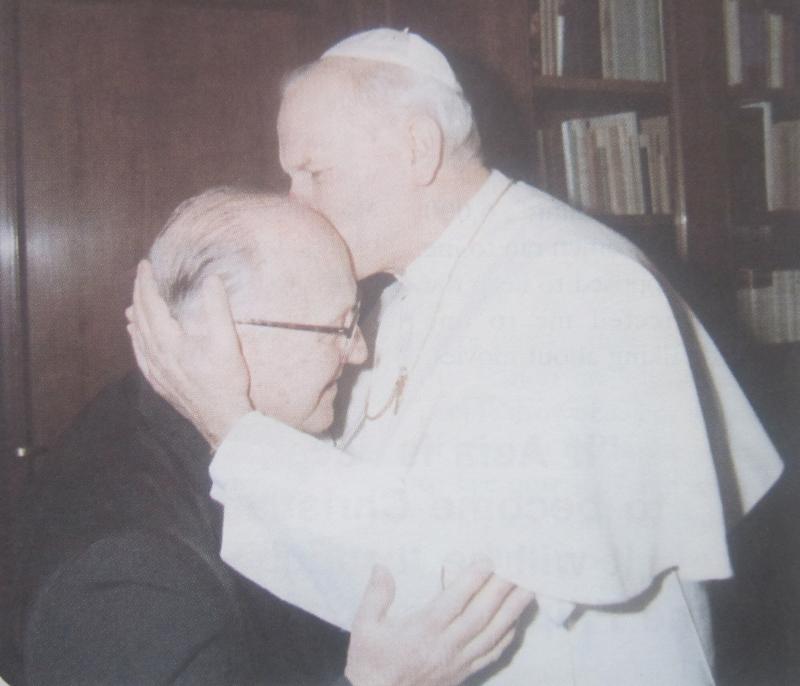 Father Aedan McGrath runs the Incola missionary program in Manila. Here he talks to Katie Donovan about his life of adventure: among other things he protected 1,500 women from rape and slaughter by Japanese soldiers in 1939, and spent three years in solitary confinement in a Chinese jail.
Father Aedan McGrath runs the Incola missionary program in Manila. Here he talks to Katie Donovan about his life of adventure: among other things he protected 1,500 women from rape and slaughter by Japanese soldiers in 1939, and spent three years in solitary confinement in a Chinese jail.
China
“Mao gave us a big compliment, he said the Church was public enemy number one.” Father Aedan McGrath, originally a Dubliner from Drumcondra, recalls being put in prison because of his missionary work as a Columban Father in China: “I was arrested on the 7th of September 1951. I was put in a tiny cell, like a dog box. It was solidarity confinement for three years. There was no table, chair or bed. I could lie on the floor. It wasn’t like Mountjoy, nor one of these prisons that like first-class hotels. I was never allowed to close my eyes, talk or sneeze. All around me people were going mad. They did not have their faith.”
Floods
He was ordained in 1929. The following year, He was sent as a missionary to Hanyang: “I was there just in time for the flood. The Yangtzi and the Han rivers met and overflowed. Millions of people drowned. For six months, there was 16 feet of water in the house where I was staying. We had to live upstairs.” He was sent to central China to “a place with no church, and the Bishop never came to see me in the 16 years I was there.”
Buddhism
Nevertheless, he was very happy: “You couldn’t help loving the Chinese. They were so loyal to their families and they respected their parents and grandparents. They didn’t send the old people away. You never heard them talk about divorce. It was all based on the wonderful philosophy of Confucius, who was against contraception and masturbation.”
When Father McGrath first arrived, he stayed with a Buddhist family. “There were three generations: a grandfather, three sons. And 20 grandchildren. The house expanded with the family. They just built on and spread out.” Living conditions were unsophisticated: “They had a pickle factory and there were rats everywhere.”
He has 25 missions spread out over a wide area: “I spent three days in each place, staying in a straw hut. I brought my own blanket. There were no roads or buses. I walked – good exercise for a young man.” It took him “a couple of months” to cover all the ground.
Legion of Mary
He admits that in those early days he felt “helpless.” I wrote to the bishop asking for a priest or a sister. He sent me a Legion of Mary handbook. I thought: ‘Impossible’. But in those days you obeyed the bishop.” He found the handbook “extremely spiritual” and felt it was “too high” for ordinary people. But needed lay people to help, so I started with a group of men.” With “the grace of God” he soon had 135 lay people working in him.
In 1939, during “the Rape of Nanjing”, 6, 000 Japanese soldiers arrived: “1, 500 women ran to me looking for protection. I was supposed to keep the Japanese army out. God directed me to one particular soldier. We started talking about movies. He asked me if I like Loretta Young, and I said, ‘She’s a personal friend of mine.’ I had met her in Hollywood. He was very excited to learn that I knew his love in Hollywood. He wrote something and sealed it and put it on the door. The soldiers all saluted and stayed away. The women stayed with me for six months – they dared not leave- but they were very safe. They were all baptized in that time.”
He was “put out” for two years because de Valera - then president of the League of Nations -accused the Japanese of trespassing when they went to Manchuria. “When I was allowed back, I expected to find nothing. Instead, the parish was working perfectly without me. The Legion of Mary had kept everything going, baptizing the babies, instructing the children, and performing marriages. It was wonderful.
Mao Arrives
In 1949, “the Communists arrived” "Mao was determined to destroy all religions: Buddhist, Muslims, Catholics, Protestants, everything. The Communist were anti-God.” Father McGrath traveled to universities, starting Legion of Mary groups: “The young Chinese intellectuals realized the communist would expel all the priests, and they would be the only ones left. After a year we had 1,000 groups.
Some 3,000 students were executed and others were given sentences of 10 to 30 years in prison: “There is a Chinese woman living in Dublin now who was arrested when she was 24 and spent 29 years in prison. Half of his life is gone. All she was doing was trying to spread the Gospel. I arranged for her to come to Ireland after she was finally let out.”
His lively face takes on a bitter expression when he dwells on the brutality of Mao’s tactics: "Mao was a bad man. People suffered terribly. They were afraid to speak about anything, terrified that they would tell on someone under torture. In three years alone, from 1949 to 1951, long before the Cultural Revolution, 20 million people died. Mao is in the Guinness Book of Records for killing 80 million people, not for swimming the Yangtzi.”
Still Abuses
He believes that China is still guilty of Human rights abuses: “Were waiting for Mary Robinsons to sort it out. Even now, those people who spent so long in prison are afraid to write there memoirs. So-called criminals are shot and their kidneys are sent to America for $ 5,000 each. I saw this when I was in America.”
He is in prison for two years and months: “At that point they said they’d shoot me but they don’t like shooting foreigners, so they kicked me out instead.”
Prison
During his imprisonment he was “very peaceful”. “I had nothing, but I kept myself busy remembering all I had learned at St. Columban’s in Dalgan Park. I said my Rosary. I did some exercises. I had two tins of rice and a bit of veg everyday, as well as some hot water. I was sick a lot my first year. Then my stomach regularized itself.”
Years later, he met Pope in Rome and they said Mass together: “He asked me what had kept me sane when I was in prison, and I said first of all, my faith. Secondly, the doctrine of St. Louis Marie de Montfort, a French saint. Coincidentally, the Pope had read de Montfort’s book during his years in Poland: “It kept him sane too.”
England
After his expulsion from China, Father McGrath was sent to England to work with Irish immigrants. Once again, the Legion of Mary was “the answer”: “I said, OK, now we have a machine. Just as in China.”
Philippines
After 10 years in England, he then spent more than a decade in the USA, and is now based in the Philippines. The latter move was in response to a request made by the late Frank Duff, founder of the Legion of Mary: “Before he died in 1980, Frank Duff called me to his house and asked me to go to the Philippines. I said, 'Why? There are 62 million Catholics there.’ He said, ‘If Asia is ever to become Christian, it will be through the Filipino lay people.’ It was a prophecy. Now there are 10 million Filipinos outside the Philippines. They are doing a tremendous job all over the world bringing people to Mass."
“If Asia is ever to become Christian it will be through the Filipino lay people”
Define Fun!
By: Bo Sanchez
7:00 AM
One Saturday morning, I kidnap our ANAWIM orphans and kids, all fifteen of them, and squeeze them into my car for a day of fun. Along the way, the kids are singing, dancing, screaming, and vomiting on each other. No wonder my car’s air freshener isn’t working well. And where are we going? Not to those expensive amusement parks where people pay 400 per head. Multiply that by fifteen, and I’ll be poorer than a presidential aspirant that’ll lose in the elections. Instead, I decide to go to a place that suits my personal tastes and cultural preferences and artistic orientation: a place with no entrance fee.
9:00 AM
I drive them to a free park (Quezon Circle in Quezon City), rent old bikes which cost me only 400 for everyone! I spend the whole morning trying to teach the small one how to balance on a two-wheeler and wondering whether the big kids have left the park and are now biking up Kennon Road to Baguio City.
11:30 AM
As I try to catch my breath, wipe my sweat away, and remove the new design off my shirt and pants (e.g. Bike-tracks), I begin to wonder why I ever got into this things of putting up an orphanage. Perhaps I should shift careers now. I begin to imagine entering showbiz, and making movie with Regine.
12 NOON
After failing to catch them with a lasso or with ingenious pits that I dig and cover with leaves I give up and softly whisper to myself, “Kakain na ako. Kung ayaw ninyong kumain, di huwag.(I’m eating now. if you don’t want to eat, then don’t)” Immediately, all fifteen are behind me, little angels in a row.
1:00 P.M.
After budget meals, plus ice drops (two pesos each) for dessert, I decided on a discovery expedition to a place that they’ve never been to. I escort them to a public toilet. Naturally, they are flushed with excitement. After that, it is ‘swing and slides’ time in park. Life’s pleasures are free indeed.
5: 00 PM
I’m driving home with my tired crew. I’m exhausted, yes but peeking through my rear-view-mirror, I catch a glimpse of the kids sleeping soundly, and my heart skips a beat. I love them so much.
One girl is still awake. She slides up to me and whispers, “Kuya Bo, masaya ako ngayon. (Brother Bo, I’m very happy today.)” So I wonder if it was the bike ride, or the swing, or the ice drops, or the public toilet. I ask, “Bakit? (Why?) “She gives me a tight hug, “Kasi, kasama ka namin.” (Because you are with us.)
I try to drive carefully. My tears are getting in the way.
PS. Happy New Year!
May this article teach you how to have a fun-filled 1999!
Salamat sa Kerygma!
Father Joeker

By Fr Joseph Panabang SVD
The Collection
At the Parish Center, we have two collection boxes for Sunday Masses. I gave them to our carpenter to make nice covers but he cut the top too much so that the collection boxes became smaller. The parishioners were complaining and to cover up the mistake, I said gently, “It’s okay, I have been here in Kintampo for eleven years and I have been observing how much you put into the collection boxes. So I made them small for it is wasteful to have big collection boxes if they are never filled up.” They seemed satisfied through I did not notice any smile.
Coffee, Please
Here in Ghana especially among the Akans, each person is named after the day he or she is born on. For instance, Monday, born girl is called Adwoa; if a boy – Kwadwo. Tuesday born girl – Abena; if a boy – Kwadbena. Friday born girl is called Amma; if a boy – Kofi, etc. One time Sr. Leone Sabatu, SSpS, went o market in Sunyani, regional capital of Brongahafo. At the store she asked, “Please, I want coffee.” Then the salesman replied, “Sister, wait small,” and he rushed to call Kofi. Kofi said, I am Kofi. What do you want?” Sr. Leone started protesting in laughter, “No, no, I want coffee for drinking...” “Yes, I am Kofi and I sell coffee,” counteracted Mr. Kofi before giving the Nescafe to Sr. Leone.
Late vocation
While I was classifying the stones for the stone wall I was erecting to check the flood in front of our Church land in Kintampo, our school headmaster, of Badu-akora chanced upon me and complained, “My wife traveled to Nkoranza village and has not returned for two months now.” with the intentions of teasing him I replied nonchalantly, “Maybe she married another man,” Oh then I will be free; I’ll go for a late vacation,” he exclaimed contrary to my expectation.
The Hanging ‘Adidas’
Afraid that thieves might break-in to our house and take our firewood which was quite visible over the low walls of our garage, I hung several chicken legs to the ceiling of the garage. From that time on not a single child even came close to the garage. They were afraid because they believed there was juju in those chicken legs. Juju is an object believed to possess spiritual power that can harm anyone.
Tamao
Nicolas Anane of Soglebio, one of best villagers, wounded his left foot with his ax while cutting down trees for charcoal. The wound was so big that it had to be stitched at the hospital. For three days he was staying with me while recovering. In one of our conversations, I told him firmly, “Now the spirits of the trees are getting annoyed and taking their revenge because you had been cutting trees for charcoal.” When he went back to Sogleboi, he was able to convince the Chief to issue a decree condemning the charcoal business which is really making their land a desert.
V.I.P.
I informed the village of Asantekwa that I would visit them on Friday but on Monday I received a special invitation from the Kintampo District Executive that all heads of departments and churches should go and welcome President J.J. Rawlings at the Park on Friday of the opening of the National Forestry Week. Correcting the information I gave to Asantekwa, I wrote in the letter, “Please, I am sorry, I cannot come on Friday as I told you because President J.J. Rawlings would like to see me.”
Hope Is 9 Novices!
By Sr. Evelyn S. Jose, SSpS
I arrived here in Luanda, almost at midnight. We waited more than three hours to get my suitcase. Finally, at 3:30 a.m. we were on our way to my new house. I noticed that we were the only ones on the road. All of a sudden I heard gun shots and the sister who was driving stopped. Oh dear, I thought, this is it. When I looked back, I say a group of policemen, one was calling back. He seemed to be drunk – the others were giving us a sign to keep going. What now?” I said. My superior who was sitting beside me said, “Keep calm sister, that’s nothing. They just wanted to greet you.”
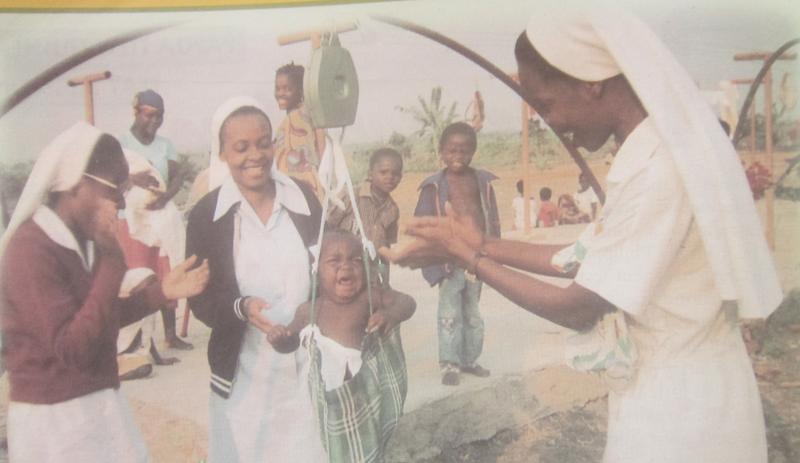
Welcome Song
The following morning I was awakened by the noise of the people in the market beside the house. I looked out and I saw our little garden and when I opened the door, the sisters, postulants and aspirants were already waiting to sing their welcome song for me.
Out to the Provinces
The first few days were spent going around the capital and meeting the people. After a week, myself and another sister from Chile who arrived two days earlier, were invited to visit our communities in the provinces. Angola is such a beautiful country blessed with beautiful people and with rich natural resources. Many are attracted to her because of her oil and diamonds. The Angolans are very friendly. Respectful and loving. One could feel so at home right away with their welcoming smiles, with their songs and dances. I was very much touched with their loving attention and acceptance. In one of the villages, a pregnant woman approached me and told me that she’d name her child after me. I simply smiled and told her that my name is too difficult to remember. After a month, I was told that a boy was baptized and was named Evelino.
To be a Treasurer
After visiting and knowing a little about our three other communities, we went back to there regional house where we finally got our assignment. I was a bit shocked when my superior asked me to take the place of our treasurer who got very sick and was sent back to Brazil. Shocked simply because I not a treasurer and I was hoping I would be sent to the bush. Well, I’ve realized that when you are in the mission, you have to be ready for anything. I am glad I had a little experience of treasurer’s work during our formation years. And seeing the need of the region, I accepted the challenge until the real treasurer would come. And so for one and a half years I gave my best with the loving support of our general treasurer and our sisters here. Finally, our provincial in the Philippines sent the second Filipino sister who was a real treasurer.
Novice Mistress
But my joy was short-lived. I was already rejoicing, thinking that once relieved from being treasurer I could go to the province for pastoral work. I was appointed to be the firt novice mistress. Oh dear Lord! Again I needed a lot of grace, a lot of courage to accept the challenge and greater responsibilities. I started to prepare myself for the task ahead with the prayers and support of the general council and our sisters.
First Angolans
And so on December 8, we accepted to the novitiate the first five Angolans. Indeed, the first two years in the novitiate were very challenging, yet full of life and rich experiences. I have come to appreciate deeply my own formation and all that the sisters and the congregation had done for me. At present we are blessed with nine novices (four in the first year and five in the second year), one postulant and eight aspirants and a number of candidates. Soon we’ll have the first profession of the Angolan SSpS. We can only praise and thank Triune God for the bountiful blessings He has given us the people of Angola.
“War-torn Angola has its quite spots. In one of these, young Angolan women make their vows for a lifetime commitment to Christ.”
I Am Sending You, The Mission Sending of Sr. Cristeta
By Sr. Virgie Mozo, SSC
One of thirteen
Sr. Cristeta de Leon is from Banyaga, Bugallon, Pangasinan. She comes from a big family of 13 children. Her parents taught them the Christian values in the family. Sister Cris has a beautiful voice which she inherited from her mother who was a “cantora” in her early days.
Seeds of vocation
Before Sr. Cris joined the Columban Sisters she was involved at the Pastoral Center at St. Columban College, Lingayen, which was under the administration of the Columban Sisters for many years. The Pastoral Center was coordinated by various Columban Sisters who nourished Cris’s vocation to be a missionary religious. During Cris’s time at the Pastoral Center she was challenged to sing, pray and share her faith and to communicate God’s message of love to other people, especially her students.
A bigger challenge
Cris responded to the bigger challenge of God in her life as she went to Birmingham, England, for her two years in the novitiate. After her profession which was held in Labrador, Pangasinan, she was assigned to the Philippines to preach the Good News to the young people of Mindanao. While in Ozamis City Cris taught in the college department of Immaculate Conception College for one semester. She also helped in the vocation work and mission animation in Mindanao.
Off to South America
Just recently Sr. Cris got work of her foreign mission assignment to South America. Cris will be facing the unknown missionary life but the faith that her parents shared with her and the inspiration of the Columban Sisters and her experience in Birmingham and Mindanao will be in heart as she journeys to South America.
As Sr. Cris goes to live with the Latin American people let us pray: “Go therefore, Sr. Cris, and share with the people of South America a Loving God, a Compassionate God, a God of abundant life. May you walk in God’s truth. May God’s light and love be with you to protect you and lead you and the South American people to life. and may God’s presence fill you with joy.”
I Have Become The Friend Of Pain
By Sr. Mercedes Castellano, CM
Life in the mission is indeed a continues self-emptying, a suspension of our own ideas and knowledge. It is here I have experienced my own handicaps, my own paralysis in so many ways. I am working a Hua Kuang Center for Development of Mentally Retarded Children and Adults in Taiwan. I have been in this Catholic-run Institution from its beginnings; I have journeyed with this Center in all of its hardships and difficulties beginning from zero up to now. At present we have 177 student-individuals. I can them individuals rather than handicaps, lest we forget they are persons.

We give them a normal atmosphere
We try to expose them to society, providing them with a ‘normal’ atmosphere where they can be ‘in’ and ‘with’ it without being abhorred and rejected. Slums and shanties are not common in Taiwan, as it is highly progressive nation; however, being handicapped in itself is a tremendous pain and suffering both for the individuals and their families.
Appreciating my own self
In my years of dealing with these individuals (Down’s syndrome, cerebral palsy, autistic, epileptics, brain damaged cases), I have been able to enter into there individual world. I have seen helplessness in them which has also led me to see my own helplessness and littleness. They have led me to a beautiful appreciation of my own normality, and the graces and gifts which God has given me which at times. I fail to acknowledge. These people have taught me the virtue of childlike simplicity and dependence on Him alone. Learning the difficult Chinese language is my first handicap because of which I experience so much humiliation. Not even my masteral degree in psychology could give me any security.
We are never incapacitated
Since our Center aims at developing these individuals, we have various kinds of training for them where they can become better persons and people in society. We try to form them spiritually, socially and physically. They are never useless; though incapacitated in many ways, they can be productive too. They are having classes in pottery, cooking, sewing, music, and other training in basic self-help-skills (bathing, grooming, toileting), laundry-training, farming, others are even employed in furniture, electric and noodle factories. They receive their own salaries. From this I have learned that we are never incapacitated if we only allow our own giftedness to come out.

I move on
Yes, it takes great courage and faith to move on in this kind of mission. Each day is a day of self-empty vessel waiting for God to fill it with His plan for me. I have learned to love pain and become its friend. Despite all this, I move on, inspired and revitalized from the positive energies I get from these lovable individuals. They are so cute and innocent looking free from cares of the world. I am learning the spirituality of St. Therese, the Little Flower, through my experiences with them. My day will always be filled with roses, beautiful and thorny at the same time. Yet, I move on inspired too by the words of our Father Founder Francisco Palau, OCD): “I will go where the glory of God calls me.”
Incola The Real Thing
They have to pay their own fare. They have to find their own job. They have to see their own insurance. They are dedicated missionaries, evangelizers in today’s world. They are Incolae. They are the real thing.
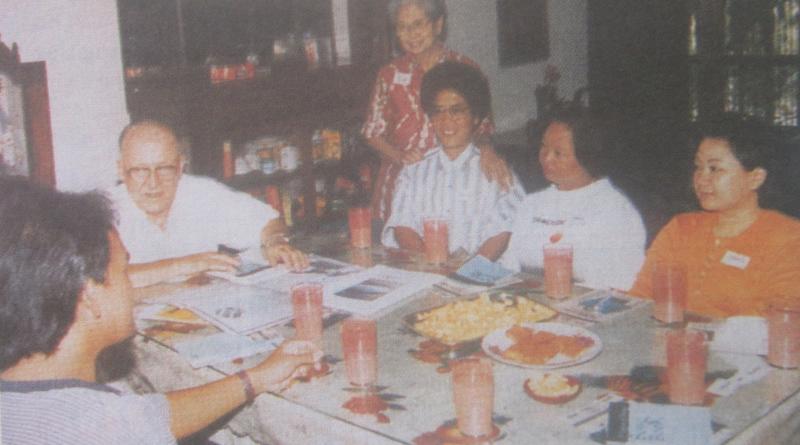
Incola sounds like one of those refreshing soft drinks. It refreshes but not in the way you might think. Incola is the Latin word for Sojourner and an Incola Mariae is a missionary of the Legion of Mary.
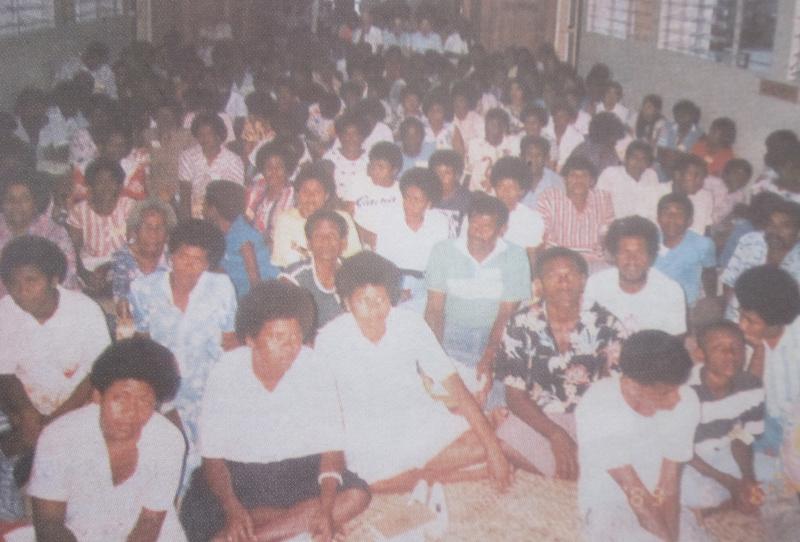
They are missionaries of a special kind. They leave a good job at home to go abroad for a period of three months, six months, or one or two years. They take a job. Often a menial one, in order to pay their way, and commit themselves to giving five evenings a week to apostolic work. They receive no financial help from the Legion, and so it often means that the dedicated missionary has to borrow to pay his or her own way to the country assigned and then pay back at the later date.
The Incola idea started 25 years ago, and grew out of what is called PPC. Teams of legionaries give up two weeks of their holidays and pay their own way to work abroad as missionaries. PPC is short for Pereginatio Pro Christo or travelers for Christ. This is the famous phrase associated with St. Columban.
In Iceland there was only one bishop and 4 old priests. The bishop came to Franck Duff, the Legion’s founder, asking for people to help in hi diocese. As a result of his request Frank Duff sent Peregrinatio teams said that they needed more than two weeks for any effective evangelization. The idea took root and eventually some legionaries gave up their jobs at home and worked as missionaries. Their idea was to have a daytime job and five their evenings to apostolic work and to establishing the Legion. Some Americans washed coca-cola bottles. Irish girls did baby sitting. Others found themselves standing knee-deep water, gutting fish. The jobs were generally low-paid, but enough to give them three meals. They were real missionaries, not knowing how it would work out.
They were very much on their own and at first they did not even have any insurance. The Legion insists that no financial help should be given from the Legion to support the Incolae. The feeling was strong that if the missionaries did not do it this way then they would not do it at all.
When Columban Fr. Aedan McGrath came back the Far East in 1978 Frank Duff was anxious to see him. When he entered the room Frank Duff took out a big map, spread it on the floor and pointed to the Philippines. “I cannot sleep at night thinking of that place,” he said. He wanted Fr. Aedan to go there and build up the Legion of Mary. The feeling was that if ever the Far East was to be converted it would be from the Philippines.
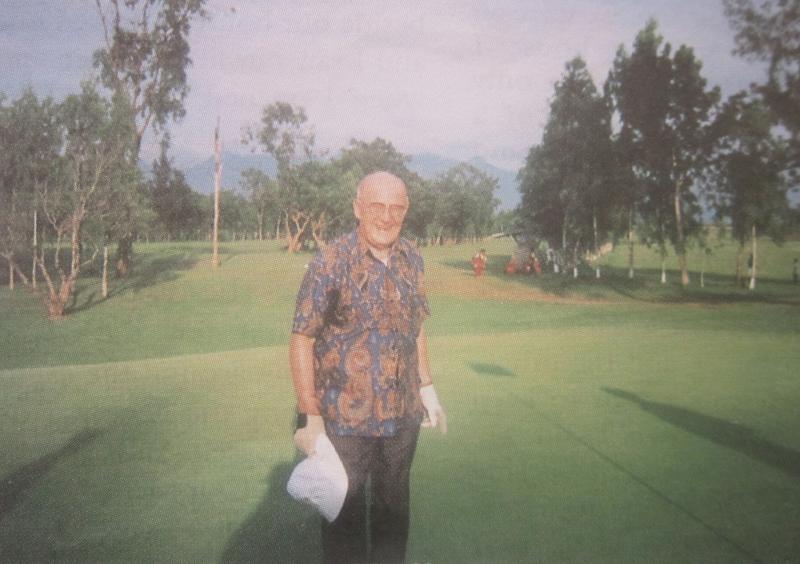
Fr. McGrath has spent several years going around the Legion councils in the Philippines. Among other things he spoke of the Incola missionary programme. At first there was little response.
Eventually I realized that Legionaries had gone abroad in search of jobs but they weren’t doing apostolic works,” said Fr. Aedan. “So I contracted them. There was this building contractor in Brunei, for example. In the evening he begun to set up praesidia.” He then wrote to bishops in the Pacific. At first the response was discouraging but today Incolae under the Senatus of Manila work in Papua New Guinea, Fiji, Kiribati and Western Samoa. They work in various capacities in universities, in high schools and in teachers’ training colleges. All have university degrees. However it is not necessary for all members to have degrees but they must be capable of doing a salaries job.
Frank Duff’s dream was to have evangelizers living normal lives. He hoped that the world still had generous people who would look more to the work to be done that to any financial reward. In the past twenty years there has been sufficient evidence to show. That there are many such people. A soft drink lasts only a few minutes and then it’s gone. The work of these missionaries lasts forever. Now that’s the real thing.
‘Frank Duff’s dream was to have evangelizers living normal lives.”
It Is The Little Communities Which Create Hope
By Fr. Melanio R. Viuya, Jr. CICM
Malaria Strikes
From December till April I was supposed to visit the 69 villages of the parish in order to animate their Basic Christian Communities. Looking at my list, there were still six villages left to be visited. But this present bout of malaria prevents me from going, for the moment. Since a coin always had two sides, this illness gives me much needed rest and opportunity to write some line about my experiences in the villages.
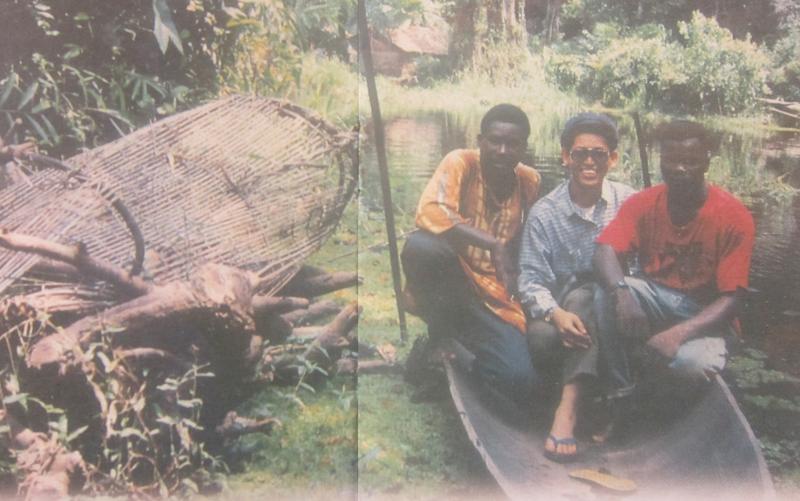
By Land and by Sea
The journeys are done either by vehicle or in a canoe. The trips by car take only an hour or two and, exceptionally, three when the road is really bad. I have to get through the forest and cross several bridges and pass by canoe can be wonderful and touristic when there is no rain and no scorching sun. It could however take a half day or even two days to reach a village. And there are 21 villages on the water route.
Four Categories
Upon my arrival in the village, the catechist and several Christians take their seats while serving me a cup of hot black coffee and some bananas. Then they begin asking me questions some of which I have already answered during my previous visits. Reflecting on their questions now I would classify them into four categories: personal, material, sacramental and apologetic, according to this order.
Personal Questions
They ask me, for example, the names of my father and my mother, those of my sisters and brothers. Where is the Philippines located? For how many years did St. Paul stay there (thinking that the Philippines and Philippi are one and the same country)? Are there also chickens and fish? What vegetables do you cultivate? Do you also eat cassava and palm oil? What is the favorite drink in the country? Do I also climb the palm tree to draw some wine? There are the personal questions.
Material Questions
The second category is less amusing. How long will it take for a letter from the Philippines to arrive here in Zaire? Do your parents reguarly send you some packages? Can we, through your help, order some solar lamps, radios, sunglasses, sports shoes, cameras? Is it possible to order sewing machines, carprentry tools and things like that? One has to undrstand that when they say "order" that is almost tantamount to giving as a present.
Sacramental Questions
Noticing that I'm not particularly enthusiastic in answering these questions, they change the topic especially when I tell them that a solar lamp could cost them NZ 60,000,000. now they narrate first a case of a certain woman married traditionally to a certain man. They have but one child, and a girl at that. The family of the man has obliged him to take another woman in order to have some more children and particularly boys so that the family lineage would not be erased from the face of the earth. He took another wife and therefore become polygamous. Question: Could the first wife receive communion? Another case: there's this teenager who became pregnant but before she could give birth the would-be father left the village to escape from his responsiblities. Could the child be baptized? And several specific cases and questions related to sacraments.
Apologetic Questions
The fourth category is about the sects and new religious movements which continues to proliferate in the country. The members of these sects criticize my Catholic practices and teachings and the people cannot answer easily.
Political Questions
With present situation of the country, a fifth category is added. Where is Laurent Kabila now? It’s that thing they call democracy which causes all these troubles, isn’t it? Where will this lead our country?
Then the B. C. C’.s
It’s the last two categories of questions which interest me most because they can be a jumping board for the discussion of Basic Christian Community. The BCC becomes an instrument to understand and to make understood our Catholic faith. The BCC guides us to where we want to lead our village, our parish, our country. We frequently use the book of Exodus, the Acts of the Apostles and the gospel to reflect upon these questions. The people listen with much attention and raise more questions. And when the response pleases them they exclaim: Why did they keep all these secret from us? I consider this remark as an expression of their desire to know more about Bible. After each conversation, I notice the happiness of people and I cannot help but thank God for the making me an instrument of joy and hope. We celebrate Mass together and we thank God for the many blessing He gives us everyday.
Question to myself
Tired of the journey and now back in parish convent, it’s my turn to ask question. Why do I take all these pains and troubles? Why did I leave the Philippines and come here? Why do I need to spend the remaining years of my spring in this lost corner of the earth? With the present situation of the country what is the Good News for these people? During my ordination, some stampitas were distributed on which was printed Article 2 of our CICM Constitution: Like our founder, each of us heard the call of Christ: Go out to the world; proclaim the Gospel to all creation (Mk. 16:15)
We are sent to the nations to announce the Good New, wherever our missionary presence is mot needed, especially where the Gospel is not known to lived. We leave our country to proclaim salvation as the great gift of God which liberates from everything that oppresses and divides people. Following Jesus, we address ourselves preferentially to the poor as the privileged recipients of the Kingdom of God.
Religious missionaries of different races and cultures, we live and work together as brother. One heart and one soul. We witness to the Father’s will that all men and women be brothers and sister in Christ. We are a sign of solidarity among the particular Churches in their universal mission.
This article of our constitution is always a source of living water for me. Just like Bible. It answers my questions and gives rise to more questions about the things we already do and those we ought yet to do.
In this country besieged by tragedies and afflictions which make the people hopeless and resigned, one of the works. If not the work of a missionary is to announce joy and hope (Gaudium et Spes!) and work for their realization. Yes, hope and joy is the Good New which Zaire needs badly. Is this not too simplistic? And I tell myself: this joy and hope will be realized in animating the BCCs and in giving their leaders a relevant spiritual formation so that they will become adult, self-sufficient missionary churches and agents of their own liberation. This job doesn’t appear simple at all.
It’s Nice To Be Missed
By Sr. Teresita Benitez, FMM
Mission Canada
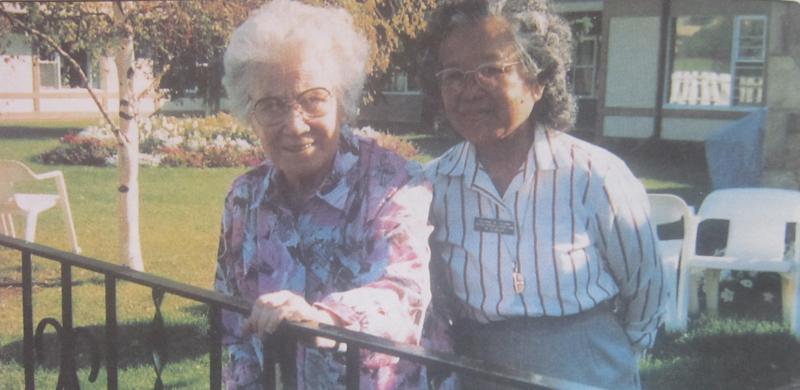
I received my first mission appointment to Canada in 1982 after living 31 years as a member of the Congregation of the Franciscan Missionaries of Mary involved in the educational apostolate in the Philippines.
Ministry at the Nursing Homes
Falling snow is a beauty. This I experienced on my arrival in Montreal, Quebec. For three months I was acclimatized and inculturated into Canadian life – experience the tail of the winter season; meeting and getting to know my Canadian FMM sisters in Quebec, Ontario and Manitoba provinces. What an immense country Canada is! After some time I received my mandate from the Bishop to be pastoral carer, a chaplain to nursing homes for the elderly.
Life in the Nursing Homes
Whereas in the Philippines, I was with the young and the restless, the vigorous and the ambitious, in the nursing home setting, daily I meet the elderly in the fall or winter of their lives. Some have lost their mobility or their memory; many are arthritis laden; some are paranoid, or have Alzheimer’s. They are all beautiful in this stage of their life – they have matured as they have passed through the different seasons of life and now they are waiting to enter into immortality. I am a friend to them, a companion, a listener. I try to be present to them and to a very faint degree, to share with them Christ’s compassion. In most of the nursing homes there’s weekly Mass. To the Catholics, I give Holy Communion once a week. At the nursing homes, I preside monthly at the Sunday Interfaith (Ecumenical) Prayer Service. Twice a month I preside at the Communion service. When a resident is passing away, I'm called for palliative care. I join the grieving at funerals especially if the deceased has no family members or has just one or two.
Looking Back
With the elderly, I help them to reminisce on their past. It’s amazing to note that those who still have their lucidity can recall their struggles and hardships in the 1920’s and 1930’s – years of the Depression; years when there was poor means of transportation, no social welfare and no communication like we have now.
When our Cathedral was rededicated, the Diocese was in search of persons to award gold medals to for meritorious service. My two nominees were accepted. One was able to attend the award ceremony while the other received it at her bedside because her passing away was nearing.
It’s Nice to be Missed
 Most civic holidays are scheduled on Mondays. So the first civic holiday I had, I took for my rest day. When I returned the following Thursday to the Nursing Home, a resident reproached me: “Yes, Sister, you had your day off and you starved us from receiving Jesus.” It’s nice to be missed.
Most civic holidays are scheduled on Mondays. So the first civic holiday I had, I took for my rest day. When I returned the following Thursday to the Nursing Home, a resident reproached me: “Yes, Sister, you had your day off and you starved us from receiving Jesus.” It’s nice to be missed.
A 75-year-old resident has poor eyesight. Her roommate, an 85-year-old, had cataract surgery and her vision improved. I asked the 75-year-old if she’s going for surgery too. She responded, at my age what do I need my sight for? I know the government pays for it but somebody younger could use the government money and use her good vision for service to society.”
I once assisted a woman dying of cancer. She was lucid to the end. When her passage to the Father was nearing, she fixed her eyes on a figure in the distance, smiled and said audibly, “The going is good.”
Coincidence
On one of my birthdays which fell on Saturday, Our Lady’s Day, I had the inspiration to visit an elderly lady who was hospitalized. She was already in the Intensive Care Unit. Being a pastoral care giver, I was allowed to visit her. I told her my name, prayed over her and invited her to pray with me the “Hail Mary’ in her heart. At the end she had a sweet smile, a few moments more of silence, and she breathed her last.
What a beautiful birthday gift. I had the sight of Mary English Dick passing to our Father’s mansion! In her long years at the Nursing Home we had the bond of friendship. She was the same lady who refused to use the government’s money for her eyesight. The same lady who received a gold medal for her pioneering and long service in education in the Calgary Diocese. I said a prayer, “Let my passage to you Lord, be like that of Mary Dick.”
Jordan A Nation Of Many Races
By Sr. Caroline Granil, FMDM
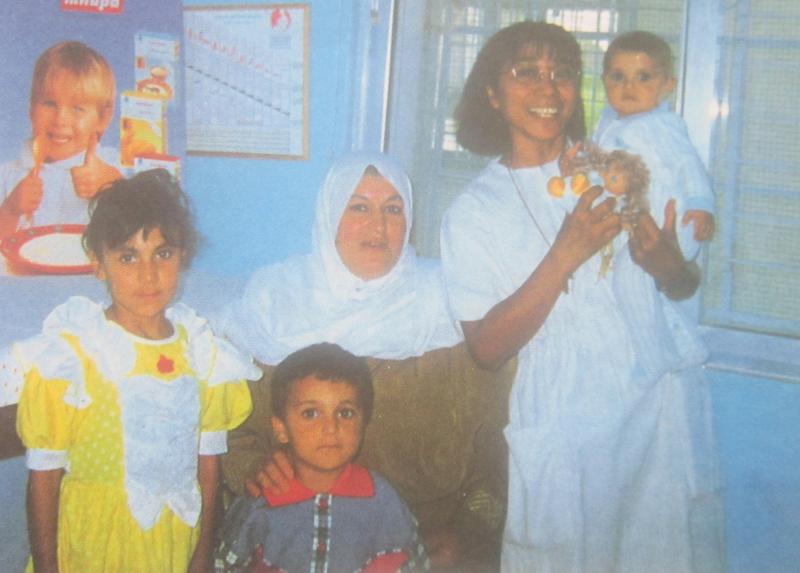
Nearly fifty years ago an organization was set up by Pius XII to help Palestinian refugees. Today its work continues in Jordan as Sr. Caroline Granil, FMDM, tries to look after women of ten different nationalities who flock to the clinic. Here are some photos of her work. The clinic serves up to a hundred people everyday who come form places like India, Palestine, Syria, Lebanon. Egypt, Iraq, Kuwait and Saudi Arabia.
<1--break-->Present!
By Sr. Nenita Derama, PDDM
Little by little I am learning to understand the people I am present to through my mission and apostolate. I cannot be like them for I am a Filipino through and through but I can be present to them in a meaningful way trying to bring to them the “Menschlichkeit”, a humanity which reminds them of the God-made-man for us.
Oasis
This is precisely what I seek to radiate to those who come to our Liturgical Apostolate Center. We not only sell things- that is secondary-but above all we seek to give Jesus to women and men. Many people enter our Center not because they want to buy, but because they find it an ‘oasis’ where they can also find a welcoming heart, giving them a bit of humanity. Many who come to our Center say, “O thank God there is such a thing in Frankfurt.” Many shops are only for money, money, but ours seeks to give also, Jesus, encouragement to the depressed, and ear to those at the margins of society.
Homeless Men
There are also homeless men who come to our Center and they are listened to and given space. They only need that little space in our hearts. I encounter many or rather some who used to be Christians but are now professing non-Christians religions or none at all; we encourage them to go back to their source or simply respect them for their conviction. Some have gone to different types of Oriental Meditation in order to seek the Truth. Being an Oriental and knowing these methods and techniques of meditation, I explain to them that these techniques reach their fullness when we meditated on the Word of Jesus, some accept that. There is one man who comes and speaks to me of Vanzavagita and I told him there are things in it that are in harmony with Christian comes and speaks to me still of Vanzavagita and Yoga but buys a crucifix or medals.
Sharing Problems
People come to our center and spontaneously share their difficulties and problem in life. The only thing I can share with them is the conviction that Jesus’ Word has power and if we allow it to work in our lives it does really work.
Sharing Brokenness
Among my greatest sources of strength in my mission are the Eucharist and the Word. That is what I can give to those I meet day after day. Thanksgiving God for the gift of my vocation, sharing the brokenness of all through my presence before the Eucharist. Thank you, Father, for everything.
Sr. Nenita Derama serves in their liturgical store in Frankfurt, Germany. This is the locus of her mission apostolate
Raising Cain In Negros
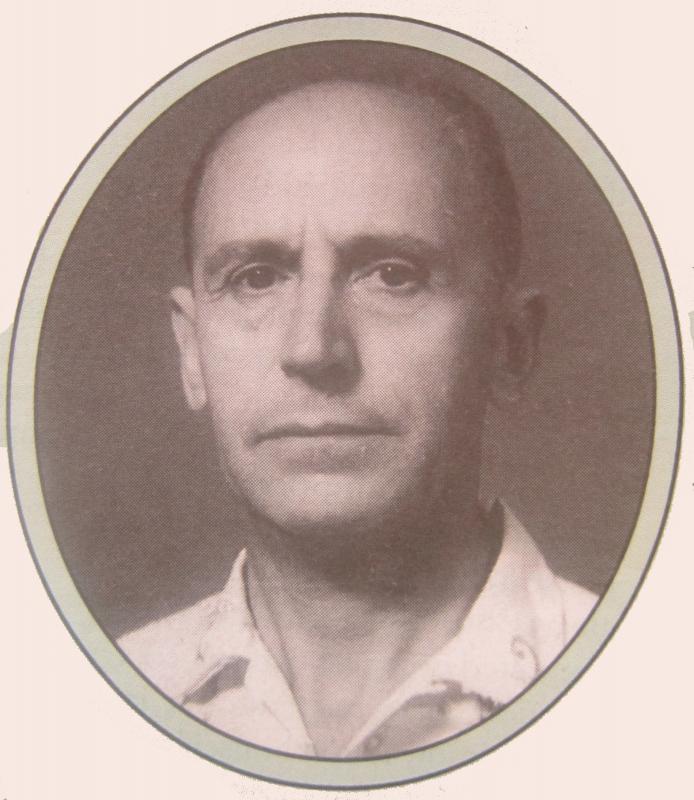 By Fr. John Carroll, SJ
By Fr. John Carroll, SJ
With permission we reprint the article of Fr. John Carroll, SJ on the death of Fr. Hector Mauri, which appeared in the Philippine Daily Inquirer.
Hector’s work went from disaster to disaster. What is surprising is that he never gave up.
THE SUGAR PLANTERS and millers of Negros probably wept no tears on August 6 when Fr. Hector Mauri SJ, breathed his last. Although 87 years old, bedridden and scarcely able to communicate these past four years, the battles which he waged for the rights of the sugar workers have left scars to this day.
Luigi Sturzo and Mussolini
Hector was born on Christmas day in the year 1909 in Milan, Italy. His father was a newspaperman an a member of the Christian Democratic Party of the great Luigi Sturzo; he had the honor of having his paper closed by Benito Mussolini when the latter came to power in 1922, and of being the first of many whom the dictator forced into exile. One can surmise that the son came by his strong ideas and fighting temperament naturally.
Expelled by Communists
Hector entered the Jesuits a month before his 18thbirthday and did his early studies in Italy. In 1938, he was studying the Chinese language in Beijing, from 1943 to 1951 carrying on a parish apostolate at Hsushion. Hector’s years in China coincided with World War II, the Japanese occupation of China and the civil war leading to the Communist victory. After the takeover, the newly installed mayor of his town had orders to rouse the people and send Mauri away. The people sent the mayor away but eventually Hector was deported.
Federation of Free Farmers
After studying agricultural economics and cooperatives in the United States, Hector came to the Philippines in 1955. Attached to the Institute of Social Order, he helped the early organizing of the Federation of Free Farmers in Central Luzon. In 1956, he helped establish a Negros chapter, thus beginning a long career of “raising Cain in Negros.”
Negros and the sugar workers were to be Hectors concern and his Calvary for the next 24 years. Within a year after arrival there, the FFF was on a collision course with the planters initially over what was known as the ’swindle of the century’ allegedly perpetrated by Victorias Milling Company whereby the plantation workers were deprived of the share of the profits due them under the Sugar Act of 1952. Stung by injustice, hector began a four-year campaign to unionize the haciendas. Some planters replied with harassment, beatings and mass arrests. Some of the workers retaliated by settings fire to the tinder-dry cane, and some plantation were burned to the ground. Father Mauri was expelled from the palace of Bacolod Bishops Manuel Yap.
Disaster to Disaster
Given the situation, the power and the mentality of the planters, it is not surprising that Hector’s work went for disaster to disaster. What is surprising is that he never give up. By 1971, he was busy with Fr. Luis Jalandoni, still at the time in the priesthood and social action director of the diocese, in organizing the National Federation of Sugar Workers (NESW).
Historian Al McCoy notes that Father Mauri had a unique ability to convince capable men that his work should be theirs. After talking to Father Gore and Father Martin about likely NFSW leaders in their area, he took the bus to Kabankalan and walked in to city hall to talk with a bright young civil servant, Bobby Ortaliz, and told him: “Let’s go out for coffee. I want you to do something about your convictions.” Ortaliz rose through the ranks and became president of NFSW.
Hector never gave up and yet, in the end, what did he achieve? Under martial law the FFF supported Marcos while the NFSW became part of the National Democratic Front. Hector disowned them both. Luis Jalandoni is international spokesman for the National Federation of Sugar Workers and unswervingly loyal to Jose Maria Sison’s dream of revolution. The sugar industry is frequently on the verge of collapse; due in large part to the irresponsibility of some planters and miller, it cannot face the challenges of international competition. Some workers are getting two days work a week at 70 a day. Many of their children are in the hills killing each other, some with the army, other with one or other faction of the NPA.. Victorias is bankrupt due to alleged mismanagement and corruption. If the industry collapses, hundreds of thousands will lose their jobs and the armed rebellion will be strengthened.
Lesser men my point to Hector as a failure. But just as its is better to have loved and lost than never to have loved, so perhaps it is better to have tried and failed that never to have tried. Indeed, is that not what the Cross of Christ is all about?
Long Suffering
Hector had four-and-a-half long years of purification as a helpless invalid to put it all in context. And when he finally met his Lord, we can trust that he also heard the words: “Come, you whom my Father has blessed, take for your heritage the kingdom prepared for you since he foundation of the world. Fro I was hungry and you gave me food; I was thirsty and you gave me drink...” And if Hector asked: “Lord, what did I do for your brothers? Despite my best effort, they are still hungry and thirsty and homeless?” the answer surely was: “I tell you most solemnly, so long as you tried to do it for one of the least of these brothers of mine, you did it for me.
The Red Flag Of The Holy Spirit
By Fr. Bart Toledo
 One of the many cultural shocks I experienced upon arriving in Brazil was the celebration of the Feast of the Holy Spirit. It is celebrated with unique traditional pomp, lots of noise, a red flag, an “emperador”, a “maestro” and a banquet.
One of the many cultural shocks I experienced upon arriving in Brazil was the celebration of the Feast of the Holy Spirit. It is celebrated with unique traditional pomp, lots of noise, a red flag, an “emperador”, a “maestro” and a banquet.
Not One Celebration but Many
The Church has one fixed date for this celebration the Feast of Pentecost. But here in Brazil, any dates suffices according to the needs of a community or of a family-in-charge of the celebration. Usually a community has two days for its annual fiesta, the feast of the patron saint on the first and that of the “Divino Espiritu” on the second. More crowds show up the second day due to the banquet that takes place in the house of the “Emperador”.
Preparation – Collection
The period of preparation for the fiesta depends on the proposed project of the emperador for the improvement of the church and on the kind of banquet he plans in red shirts carrying a red flag visits families, signing and clapping a song of the Holy Spirit. The flag holder waves the flag all over the members of the family as a sort of blessing. The family gives a donation at the end of thee visit. The visit sometimes extends to other communities and other parishes.
This year Varzeas, one of the communities that celebrates this fiesta, made its preparation for the whole year. The emperador planned to improve the roofing of the Church, to provide a ceiling and to repaint the entire Church. Aside from the flag collection, he wrote letters to former residents of Varzeas who are working in big cities. He was able to collect more than enough for his project and for the banquet. He invited the bishop and other priest to grace the occasion. The bishop found no reason to refuse.
The Procession
After the celebrations, I complained about the procession. There was no procession of the image of the patron, St. Anthony. There was, instead, a procession of the emperador. The bishop and I had to walk with the entire community to fetch the emperador and to deliver him to his house after the Mass. I didn’t like the idea but I had to oblige with the bishop who, I suppose, is more in-culturated than I am. I was a bit impatient attending to the emperador. During the Mass I was distracted by the constant waving of the flag. The attention of the crowd was more on the royal couple seated in a place of honor than on the Eucharist. After the Mass, a raffle of names was held to determine the next emperador and the families in charge of various tasks. The festivities usually last until evening.
The Pastoral Challenge
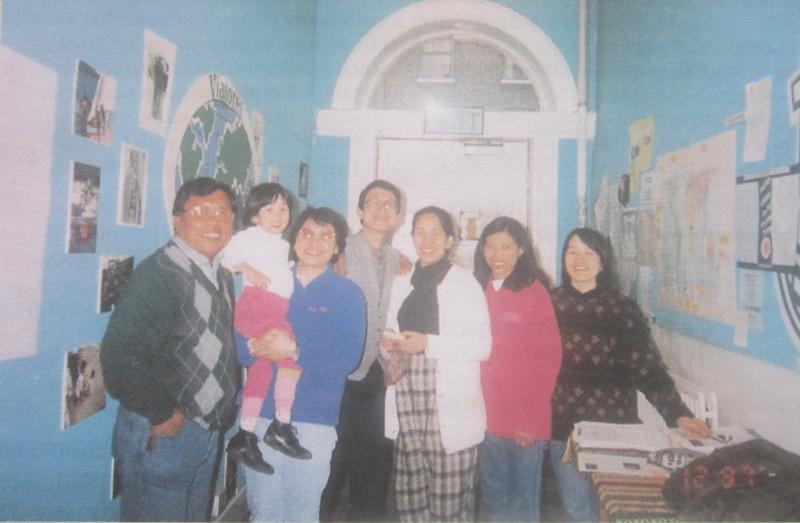 Many priests, foreigners and Brazilian alike, don’t seem to be happy with this celebration. Many see its hassle and the lack of the faith respect. People’s interest and participation are purely due to tradition. Faith, if any, is in the flag and not in the Holy Spirit. When the flag is folded and hidden away, the people stay away from the Church. During the rest of the year celebrations. Except Christmas and Holy Week, are sparsely attended. The people become active again when the flag comes out again. The only very positive aspect is the physical improvement of the church which depends so much on the goodwill of the emperador. The celebration hardly helps the improvement of the Christian commitment of the community.
Many priests, foreigners and Brazilian alike, don’t seem to be happy with this celebration. Many see its hassle and the lack of the faith respect. People’s interest and participation are purely due to tradition. Faith, if any, is in the flag and not in the Holy Spirit. When the flag is folded and hidden away, the people stay away from the Church. During the rest of the year celebrations. Except Christmas and Holy Week, are sparsely attended. The people become active again when the flag comes out again. The only very positive aspect is the physical improvement of the church which depends so much on the goodwill of the emperador. The celebration hardly helps the improvement of the Christian commitment of the community.
How to make this very popular celebration truly a celebration of faith is a constant challenge to us missionaries in Brazil.
A Day with the Lay Missionaries
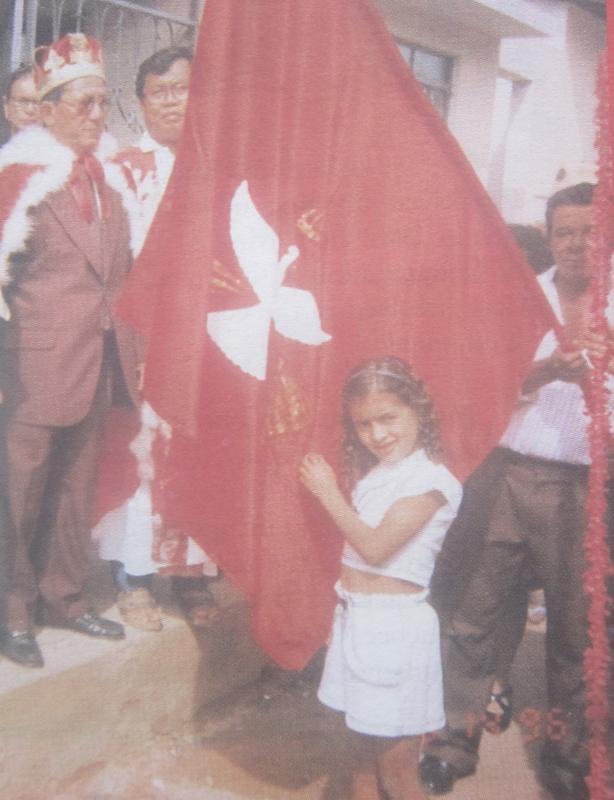 On my homeward journey from Brazil to the Philippines I had a chance to visit places in Europe.
On my homeward journey from Brazil to the Philippines I had a chance to visit places in Europe.
In Ireland an in London I spent some days with Filipino Columban lay missionaries. It was my first meeting with them but our encounter was like that of old-time friends. There was much warmth and openness there seemed to exist a bond between us. I guess it was not it was not merely our being Filipinos but much more our being missionaries.
I was very lucky when I moved from Dublin to Dalgan Park, the H.Q. of the Columbans. Fr. Sean Coyle was on vocation.
Together we went o Newbrigde, County Kildare, where three Filipino lay missionaries – Annie Budiongan, Lorna Cahayag, and Gracia Kibad – are working. We visited their pastor and the family of an Irish lay missionary working in Brazil. The relationship between the lay missionaries and the Irish families was very impressive. There was friendliness everywhere we went.
I met Roberto and Kris Mina and their daughter (Filipino lay missionaries) in Dublin during a meeting of the Viatores Christi. All of them were invited to share with departing Irish lay missionaries their experiences of adjusting to the Irish Culture.
In London I met Jasmin Lood, a Filipino lay missionary there. That was great.
I was so enriched by my brief encounter with the lay missionaries. A visit always meant much to me when I was in Brazil – something I seldom got, being assigned to a very remote area. For me, ‘wasting time’ with fellow missionaries is wasting time for God.
Who Has Time For The Young?
By Sr. Eva N. Calingo, CM
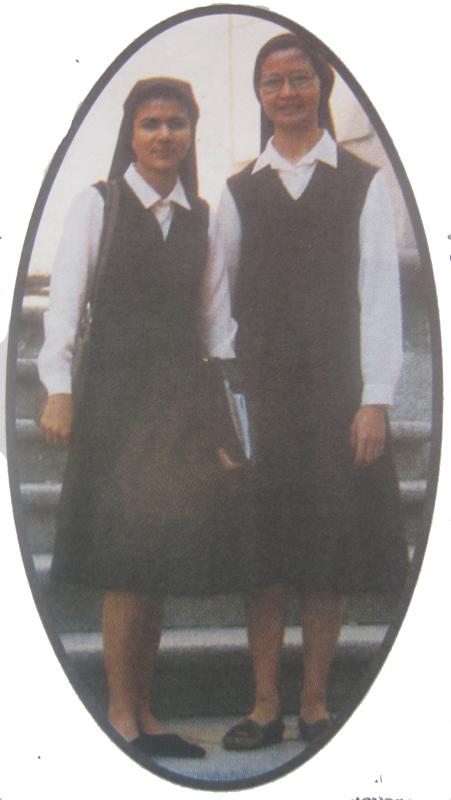 I Miss my Previous Work
I Miss my Previous Work
Never had I thought of being sent her to Salamanca, Spain. For some months now I sit down day after day learning the Spanish language. I miss the active apostolate that I was involved in before: the soul-searching and far reaching questions and life testimonies of the prisoners where I worked; the joy and laughter, and the simple but difficult-to-answer question in the school; the hopeful but pain-filled look in the eyes of the street children; and the seemingly monotonous but very challenging work in the handicrafts center. But then life here in Spain opened to me the door that leads to yet another world I did not expect to experience –the world of some young people from all over Europe and a few from Japan – that of my classmates in the intensive language courses.
Why?
“What are you studying the language for? What will you do after studying? What are you doing?” These are questions which I have to answer month after month, as each month we have different group. Only very few stay for more than three months. The young, curious hearts and minds are simply asking: What is the religious life? Even the young men in my class were asking me the whys and the hows of my life as a religious. For them it is unimaginable that I left my job, my own circle of friends and my family and live in a convent, and now leave my own country to stay in Spain and Rome for a number of years.
Criticisms of the Church
What criticism they voice about the “church” which for most of them means the Pope, the priest, and the religious! Rarely have I was bombarded with questions. I just would not sit down there and listen, they was even a time when our teacher and I helped each other in answering them. How uniformed and misinformed they were! Some would approach me during our break, repeating the same set of questions.
The Enigma of Retreats
They are particularly curious about the idea of retreat. A day of silence, prayer and reflection – they would ask: “Do you like it?” The annual eight day retreat – without talking!” And the 30 –day retreat – they just shake their heads. It is an enigma for them. A part of their being cries for silence, for a firm belief in Somebody Absolute. But the pressure and the forces of the society they are living in are too strong for them to overcome or resist. They would lie to talk about their restlessness, their hopes, their dreams, their struggles. Is there somebody willing to listen to them? Is there somebody willing to give their very precious time to clarify their doubts or affirm the steps they have taken towards this untrodden paths of their own self? You, do you have time?
Silence as a Friend
I happen to be friends with a young lady from Germany, Andrea. At first, it was simply out of curiosity about the Philippines that she made an appointment to see me at the Colegio Mayor ‘El Carmelo’ where I am studying with our Sisters, The Carmelite Missionaries. She travels a lot but has never been to Asia. This continent held little attraction for her. Well, until we became classmates. Young, full of life, confident and of lively strength, she has a sensibility that goes beyond what is material. Her beautiful smile reflects her good heart. She faces file as it comes, thus enjoying the present moment deeply, fully. At times we would walk around the city, sit down in parks, take coffee and talk about many things. She has her questions too about the faith, and one main doubt. But what I admire in her is that she is. She has her “life of prayer” and to her, silence is a friend.
Time to Talk
A young lady from France, Delphine, told me one time that she would like to know also about things such as religious congregation and retreats. All people need time to be silent and to reflect, she said. The she asked me: “Do you have time? I’d like to talk...” And the story goes on and on. May the ANDREA’s and DELPHINE’s of this world find the message of Hope and Love alive in our very own lives, messengers o f the Good News
Why Can’t We Have A Child?
By Carmela Caringal

Just as the sun gracefully rises every morning to bring sunshine on the faces of wizened folk, my seven-year-old- daughter Mir-Isabel never fails to bring an aching kind of happiness to my heart. She couldn’t have come at a more opportune time. She was like a ray of hope in an utterly miserable and painful situation.
Longing for Children
You see. I married rather late. I got busy with my career. I became so successful that I almost forgot marriage in my plans. Yet somehow deep down in my heart I desired to have a family of my own. Then I met Tony and so I decided to settle down. We got married on October 10, 1981. Both of us came from large families – my husband has eight siblings while we are seven in my own family. So it was only natural for us to expect a large family. We decided to build a comfortable house, big enough for many children.
Medical Problem
But things did not exactly turn out as we had planned. I did not conceive right away because I had practically all the ailments of the reproductive system such as an inverted uterus, hormonal imbalance, irregular blood circulation, endometriosis, and blocked fallopian tubes. Besides, I always stressed out, juggling my time between my job as a manager and my duties as married woman whose biological clock was ticking away rapidly.
I was racing against time. And maybe, just maybe, rebelling against God. I resented the fact that there we were, capable of becoming responsible parents and God wouldn’t send us a single child to care for. But those who seemed to be careless enough to push their children to work out in the street had more children than they could manage. It’s so unfair, I cried bitterly.
Endless Teasing
It didn’t help that every one I met during family gatherings endlessly teased me about it. How can you be childless?” they asked. “It doesn’t run in our family?” I was so humiliated it felt like a sore wound that refused to get healed. My husband and I became desperate. We consulted every doctor who was worth his salt on possible solution to our problem. We tried all sorts of things but all for naught.
Something Happened
In 1985, after almost four years of asking God for a child, I experienced something that changed the way I looked at my problem. A friend invited my husband and me to the FLAME Prayer Rally. KERYGMA editor Bo Sanchez led the worships. He invited us to come to Jesus and surrender our lives, our problems to Him who had promised to carry our burdens for us. Bo then led us to sing the song Here I Am.
Powerfully, the crowd sang, “Here I am Lord, Is it I Lord? I have heard you calling in the night... I will go Lord, if you lead me... I will hold Your people in my heart...?
I couldn’t sing. It was as if there was a lump in my throat. I just stood there listening to the song until I was hearing no longer the crowd but God Himself speaking the lyrics of the song to me. Tears rolled down my checks and I cried silently as I came to know about God and His loving grace.
A Tumor
In August that same year, two weeks before my birthday, I went for a check up and my doctor found a tumor in my uterus. He suggested an operation to remove the tumor.
But fired with my newfound faith, I thought I should wait a while and trust God for my healing. I did what before would have been unthinkable: I resigned form y job. I thought respite from my hectic work schedule would make me well and result in the baby. I had longed for.
However, by the summer of 1987, the pain in my uterus intensified. Finally, humiliating as it was, I borrowed money for my operation on June 29, 1987.
By 1988, this time, I had made friends with people in the Charismatic Renewal such as Lito Urgino, one of the elders of Couples for Christ, who was then executive director of the Lay Formation Center at San Carlos Seminary in Makati. He advised me to take the Catholic Lay Evangelization Program (CLAYE) which, among other things, taught me to rely on God and wait on Him for a perfect solution to my problem.
It was with expectant faith that I waited for God leading. After deep prayer, I decided to go back to the corporate world in October 1988. From then on, blessings came my way one after the other. The best was one I received in 1990.
No Adoption
Fr. Francis Gustilo, a Salesian priest friend who knew that we’d always wanted a child, casually suggested to my husband to try adoption. Tony related to me later that he simply found himself saying that we were considering it. This was strange because, actually, I had thought of the idea myself and had brought it up to him. But he categorically told me he was against the idea. He did not want us to adopt anyone not of our kin and he changed the subject every time I pressed him to make a decision.
Prayer Worked
I prayed that my husband would change his mind. And the Lord heard my prayers! On February 23, 1990, Tony and I went to the Kaisahang Buhay Foundation (KBF) and applied for adoption. Everything went smoothly. On June 17, 1990 – Father’s Day –we waited with bated breath at the KBF lobby, holding hands and praying. Soon, a nun came out to the lobby holding a baby. She came near me and handed the baby to me.
We are all Adopted
With arms trembling and tears welling up in my eyes, I cuddled her – our five-and-a-half month old baby girl. Guess what? She smiled at us beautifully.
Then, it dawned on us: why didn’t it occur to us before? Tony. Myself. All of us are God’s adopted sons and daughters. And He has given us this baby to adopt our own.
We named our baby girl Mir-Isabel. And she will always remind us of God’s constant love.